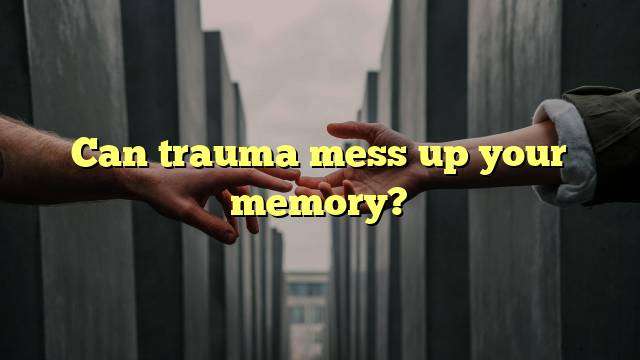Can Trauma Mess Up Your Memory?
Trauma and its effects on memory can be complex and difficult to understand. Memory is a complicated process and it is important to understand the effects that trauma can have on it in order to effectively manage it. This article will explain the effects of trauma on memory and provide tips to help manage it.
What is Trauma?
Trauma is a response to a deeply distressing event. It can be physical or psychological and can have long-term effects on a person’s mental and physical health. Trauma can be caused by a single event or a series of events and can lead to a range of symptoms, including depression, anxiety, flashbacks, nightmares, and difficulty concentrating.
How Can Trauma Affect Memory?
When a person experiences trauma, their brain is flooded with stress hormones which can interfere with their ability to process and store information, the main functions of memory. Memory can be affected in a number of ways. It can be impaired, fragmented, or blocked, making it difficult to recall events or remember details. It can also lead to confusion, difficulty concentrating, and difficulty forming new memories.
Physical trauma such as a head injury or stroke can cause direct damage to the brain, which can impair a person’s ability to process and store information. This can lead to short-term memory loss and long-term memory problems.
Psychological trauma can also lead to memory problems. The experience of trauma can interfere with a person’s ability to focus and concentrate and can lead to difficulty in forming and retrieving memories. It can also lead to difficulty in paying attention and organizing information, which can interfere with a person’s ability to remember events or details.
How Can I Manage Memory Loss Caused By Trauma?
It is important to remember that memory loss caused by trauma is not permanent and can be managed with the right strategies and support. Here are some tips to help manage memory loss caused by trauma:
Write Things Down: Writing important information down can help you remember it. Keeping a diary or journal can also help you remember events and details.
Create Reminders: Use reminders such as alarms or sticky notes to help you remember important information.
Break Tasks Into Smaller Parts: Breaking tasks into smaller parts can help you focus and make it easier to remember the details.
Take Time to Relax: Taking time to relax and practice mindfulness can help improve your focus and concentration and can help you remember things more easily.
Exercise Regularly: Regular exercise can help improve your concentration and can help improve your memory.
Talk to a Professional: If you are struggling to manage your memory loss, it is important to talk to a professional. A mental health professional can help you develop strategies to manage your memory loss and provide support.
Trauma can have a significant effect on memory. It is important to understand the effects of trauma on memory and develop strategies to manage it. It is also important to seek help from a mental health professional if needed. By understanding the effects of trauma on memory and taking steps to manage it, you can take back control of your memory.
